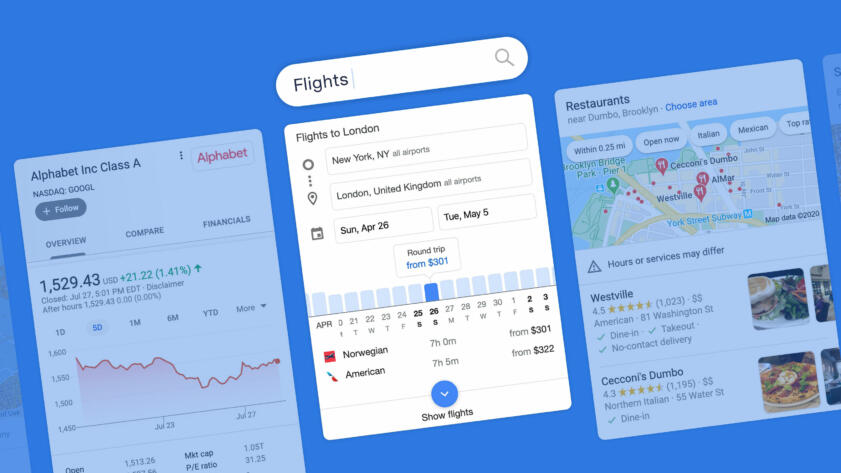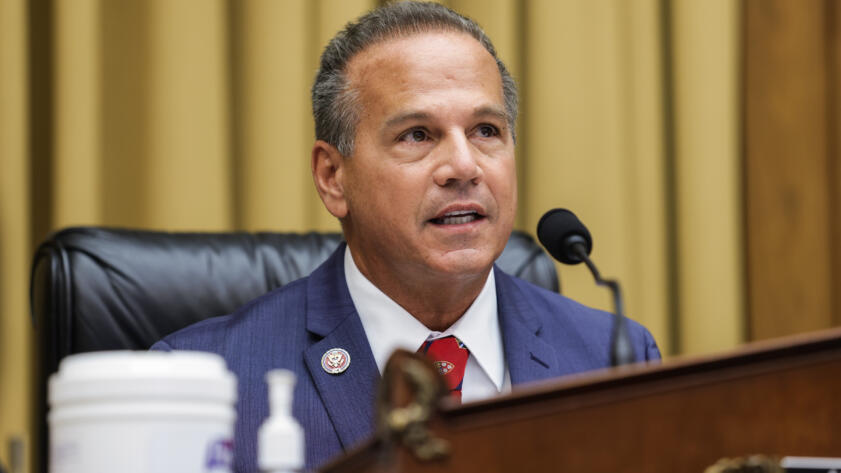A bipartisan group of U.S. lawmakers led by Reps. David Cicilline (D-RI) and Ken Buck (R-CO), chair and ranking member, respectively, of the House Judiciary antitrust subcommittee, proposed five bills Friday designed to dilute the power of the largest tech platforms—one of them tackling an issue brought to light by a Markup investigation.
The American Choice and Innovation Online Act, sponsored by Cicilline and Rep. Lance Gooden (R-TX), would prohibit certain large tech platforms from favoring their own products and services on their platforms, including in search results.
In an investigation published last year, The Markup found that Google covered 41 percent of the first results page on mobile with its own products and properties, such as Google Maps, Google Flights, and “direct answers,” which often replace the need to click through to a website.

Google the Giant
Google’s Top Search Result? Surprise! It’s Google
The search engine dedicated almost half of the first page of results in our test to its own products, which dominated the coveted top of the page
When we examined just the top of the page, the equivalent of the first screen on an iPhone X, that figure jumped to 63 percent. Our reporting found that this prominent placement of Google’s own properties and products proved damaging and sometimes fatal to companies offering similar services.
The bill aims to make tech platforms more of an even playing field for “business users” that depend on them for commerce. The bill defines a list of unlawful conduct that will sound familiar to anyone who followed the subcommittee’s 16-month investigation into digital competition, launched in 2019.
In a hearing last summer, subcommittee members grilled the CEOs of Google, Apple, Facebook, and Amazon, and Cicilline cited The Markup’s reporting as evidence that Google is building a closed ecosystem.
“An investigative report published just yesterday found that 63 percent of searches that start on Google also end on Google’s own websites,” Cicilline said. “And to me that is evidence that Google is increasingly a walled garden which keeps users on Google’s sites, even if Google doesn’t have the most relevant information. And it’s economically catastrophic for other companies online.”
The subcommittee’s final report, released in October 2020, also mentioned The Markup’s investigation.
The proposed legislation would prohibit platform operators from giving an advantage to their own products, restricting interoperability with other platforms—treating its “own products, services, or lines of business more favorably than another business user.” It also would prohibit platforms from requiring business users to purchase certain products in order to have access to others and from controlling pricing.
Another bill, the Ending Platform Monopolies Act, would restrict the ability of platform owners to participate in their own online marketplaces and may also apply to Google’s placement of its own products in search results depending on interpretation.
Google spokesperson Julie Tarallo McAlister said the company had no comment about the legislation.
The other bills are the Augmenting Compatibility and Competition by Enabling Service Switching (ACCESS) Act, which requires large communications platforms to enable users to easily transfer their data to competing platforms; the Platform Competition and Opportunity Act, which restricts companies from acquiring and killing off competition; and the Merger Filing Fee Modernization Act, a version of which has already passed the Senate.





